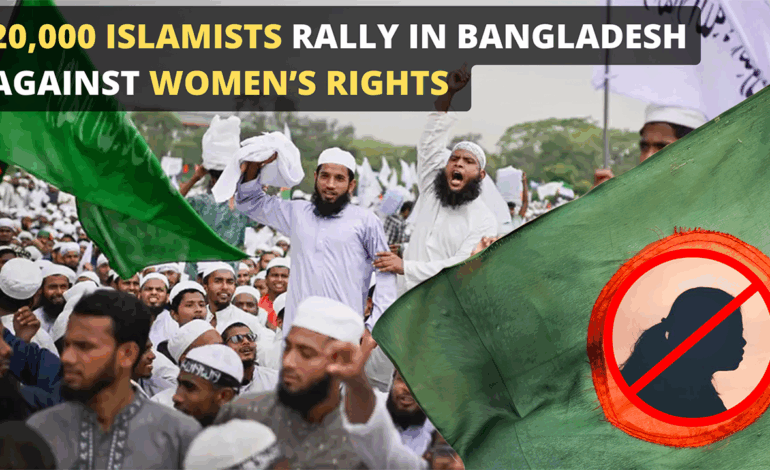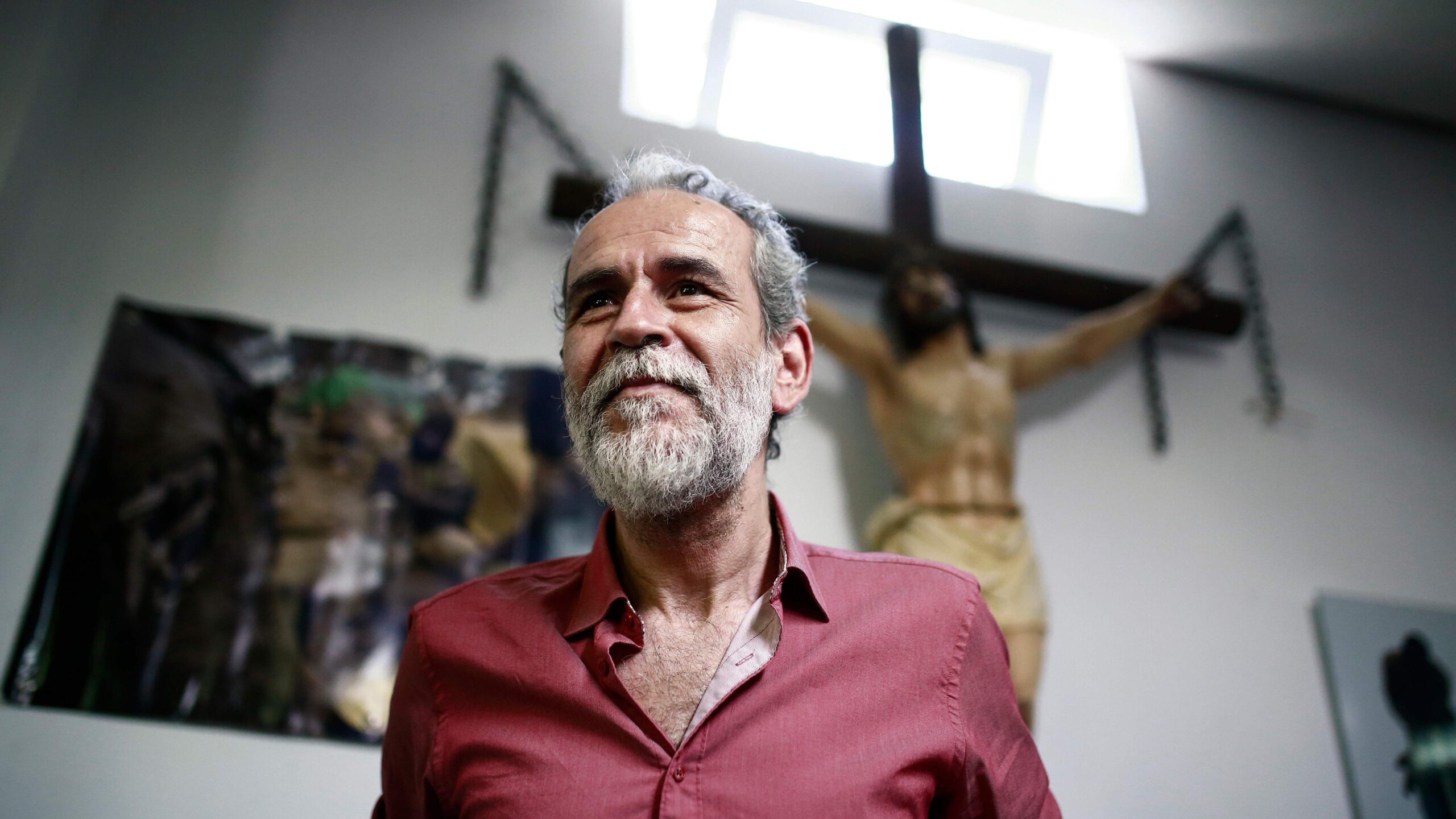20,000 Islamists RALLY in Bangladesh Against Women’s Rights

Tens of thousands of supporters of an Islamist group rallied in Bangladesh’s
capital, Dhaka, on May 3rd to condemn proposed recommendations to ensure equal
rights between men and women in the Muslim-majority nation, including ones
related to property.
> https://twitter.com/EconomicTimes/status/1918968854920692028
As many as 20,000 followers of the Hefazat-e-Islam turned out to express their
support for the Islamist group and laid out their demands for the country’s
interim government under Muhammad Yunus. Some supporters carried banners and
placards reading “Say no to Western laws on our women, rise up Bangladesh” near
Dhaka University.
They opposed proposals by the Bangladeshi government, which include equal
inheritance rights for women, a ban on polygamy, and recognition of sex workers
as laborers, arguing that the proposed legal reforms contradict Sharia law.
Mamunul Haque, one of the group’s leaders, demanded that the interim government
abolish its reforms commission and that its members be punished for the proposed
changes, arguing that some of the recommendations proposed hurt “the sentiments
of the majority of the people of this country” by suggesting that the laws of
inheritance are the main cause of inequality between men and women in
Bangladesh.
> https://twitter.com/DavidKrohto/status/1919946602061463729
The Islamist group’s leaders also demanded that the interim government ban the
Awami League Party, led by former Prime Minister Sheikh Hasina. She was ousted
in August last year after weeks of student-led protests. She has been in exile
in India since she was overthrown.
However, concerns are raised as Islamist groups have increased their visibility
and influence since Hasina was ousted, with minority groups complaining that
they felt intimidated.
Human Rights Watch called on the Bangladeshi government to comply with its
obligations under international human rights law to ensure gender equality,
adding that women and girls have played huge roles in Bangladesh’s history, from
the fight for its independence from Pakistan in 1971 to the more recent 2024
July Revolution, which saw the ouster of then-Prime Minister Sheikh Hasina.
> https://twitter.com/jackyhavanoodle/status/1919045844000461259
“Today’s period of political transition is another inflection point and a unique
opportunity for Bangladesh’s government to strengthen its commitment to women’s
rights. The government should not miss the chance to do so.“ Human Rights Watch
said.








